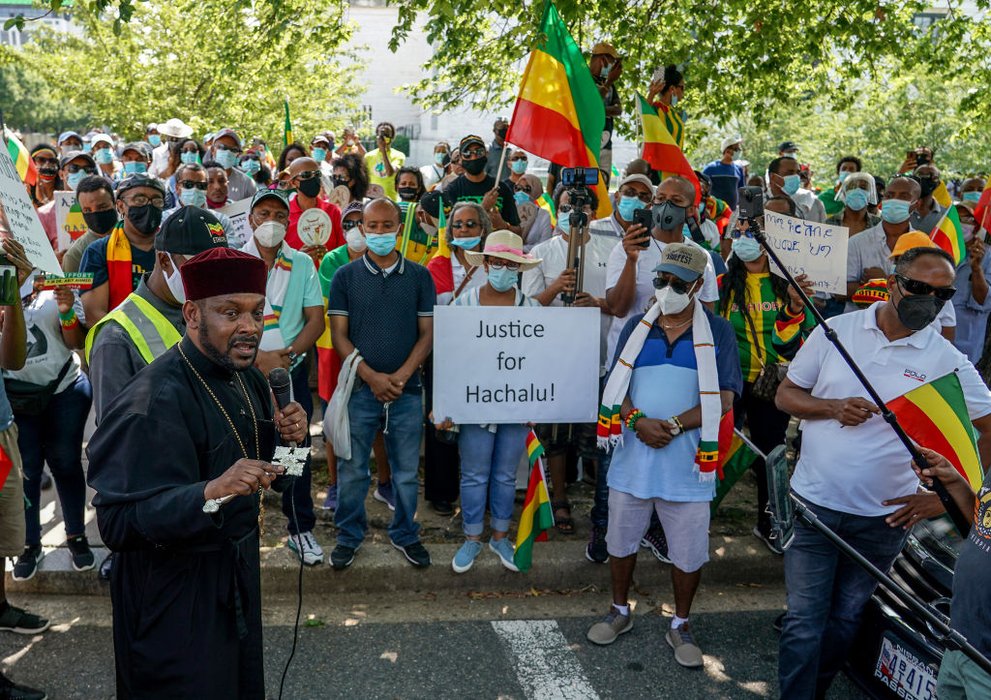
General Update
On 14th June 2024, the United Nations reported that Ethiopia experienced an escalated human rights crisis in 2023. The report documented 594 violations which affected 8,253 victims. State forces, including the Ethiopian National Defence Force (ENDF) and police, committed 70% of these violations. Non-state armed groups caused 22.3% of the incidents, with the Eritrean Defence Forces involved in 25 cases in Tigray. Government clashes with the Fano militia resulted in 740 civilian deaths in Amhara. In Oromia, conflicts with the Oromo Liberation Army (OLA) and inter-ethnic violence led to 366 civilian deaths, including 46 women. In a similar incident, the UN High Commissioner for Human Rights, Volker Türk, urged Ethiopian authorities to take concrete measures to stop ongoing human rights violations and abuses that threaten reconciliation and peace in the country. He called for immediate steps to protect civilians, prevent further violations, and ensure thorough investigations to hold perpetrators accountable.
On 18th June, human rights groups urged Ethiopian authorities to stop their crackdown on civic space and respect the rights of political opponents, journalists and activists. They highlighted the use of physical and digital surveillance, verbal harassment, intimidation and threats. The groups called on regional and international partners to pressure Ethiopian authorities to uphold human rights obligations and ensure the safety of defenders and journalists. Ethiopian security forces have intensified their harassment of human rights organisations, with staff being followed and threatened to cease their reporting and advocacy efforts.
In June 2024, the Ethiopian Human Rights Commission (EHRC) released its annual human rights situational report. The report highlights the rise in human rights violations against civilians in armed conflicts. During the reporting period, government forces unlawfully and arbitrarily killed civilians, conducted extrajudicial killings, and carried out indiscriminate and targeted attacks. Armed groups abducted people for ransom. The report cites issues like the lack of water, sanitation and basic services, denial of visitation rights, inadequate food, sleeping and medical care, and widespread harassment and abuse. As a result of the conflict and the state of emergency, authorities continued to target HRDs and arbitrarily detained media personnel, civil society members,and political party members.
Gender-based violence continues to rise in Ethiopia. On 25th June 2024, civil society groups condemned the violence, kidnappings and killings targeting women and expressed concern over the lack of transparency and accountability. They reported that Mekelle City Police recorded 12 women murdered, 80 raped, 10 kidnapped, and 178 faced attempted murder over the past eleven months.
Association
In May 2024, the Ethiopia Human Rights Defenders Center released its first periodic assessment of human rights defenders (HRDs) in Ethiopia 2024. The report revealed that HRDs face numerous challenges, including smear campaigns, intimidation, death threats, derogatory remarks, and online assaults. Additionally, HRDs are often detained for extended periods without family access.
On 31st May 2024, Ethiopia’s Council of Ministers endorsed a draft bill to allow formerly outlawed organisations, such as the Tigray People’s Liberation Front (TPLF), to re-register as political parties, pending approval by the House of People’s Representatives. The amendment addresses gaps in the 2019 Electoral Proclamation which barred groups involved in armed violence against the government from gaining legal party status. In January 2021, Ethiopian officials declined the TPLF’s request for registration as a political party, citing the group’s involvement in years of conflict with the Ethiopian government, including its central role in the Tigray War.
Expression
In May 2024, Reporters Without Borders’ Freedom Index reported Ethiopia's continuing decline in civic space conditions. The index ranked Ethiopia 141st, a significant drop from 130th in the 2023 index.
On 5th June 2024, Ethiopian authorities released three journalists - Belay Manaye, Bekalu Alamirew, and Tewodros Zerfu - who were arrested for seven and ten months respectively for covering the Amhara conflict under a state of emergency law. Five journalists - Genet Asmamaw, Meskerem Abera, Dawit Begashaw, Abay Zewdu and Gobeze Sisay - remain arrested.
On 15th June 2024, authorities arrested journalist Muhyadin Abdullahi for a Facebook post criticising Harari State President Ordin Bedri’s water supply plans. On 17th June 2024, the Harari Supreme Court ordered his release on 10,000 birr (USD 85) bail. Despite these orders and his wife's payment of the bail, police refused to release him, claiming they had not received the court order.